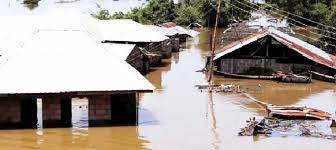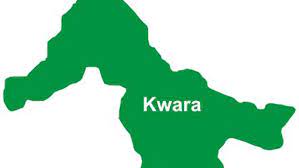2022 Flood Disaster ‘Worst Ever’ In Nigeria, Ways To Reduce Its Effects- Segun Opowoye

A flood is an overflow of water that submerges land that is usually dry and this in most cases result in huge loss of life and property, destruction of infrastructure, business and increased risk of diseases.
Floods are also the most frequent natural disasters, affecting over 2.8 billion people in the world and causing over 200 000 deaths over the past three decades.
The World Health Organization had categorized the 2012 flood disaster in Nigeria as the worst flood to have hit the country in the past 50 years.

‘The National Emergency Management Agency has however confirmed that as at October, 2022, water levels at Lokoja and Makurdi along Rivers Niger and Benue is 11 per cent above the level recorded in 2012,
So far, the flood has wreaked havoc in 31 states of the federation and the Federal Capital Territory (FCT).
Over 500 persons are reported dead; 1,411,051 affected; 790,254 displaced persons with 1,546 persons injured. Furthermore, 44,099 houses are partially damaged; 45,249 houses totally damaged; 76,168 hectares of farmland partially damaged and 70,566 hectares of farmland are completely destroyed by the great deluge’ an expert submitted.
Worst affected are tributaries communities to River Niger, Benue and those closed to the lagdo dam in Cameroun and other dams opened as a result of the excessive rainfall recorded for 2022. Global warming as a result of climatic change has been one of the main causes of this year flood disaster. Other causes are due to houses built along the flood plain channels, blockage of drainages, lack of proper town planning, poor vegetation belt and broken down of dams and bridges.
Consequences
Apart from the financial losses incurred by farmer and agribusiness entrepreneurs, the destruction has been estimated to put 25.5 million people across 26 states and the Federal Capital Territory FCT in acute food crisis next year.
Floods have large consequences for communities and individuals. As most people are well aware, the immediate impacts of flooding include loss of human life, damage to property, destruction of crops, loss of livestock, soil erosion due to rapid water runoff and deterioration of health conditions owing to waterborne diseases like cholera and typhoid.
Nigerian states like Kogi, Benue and Bayelsa are worst hit with large hectares of farm land submerged by water. Corpses have been exhumed and floating on water as a result of the flood with antecedent cholera outbreak and shortage of cholera vaccine as reported by UNICEF.
Internal Displaced Persons(IDP) camps already overcrowded because of the ongoing insurgency have had matters worsened by the effect of the devastating flood with the former president Goodluck Jonathan’s residence in Bayelsa state submerged by water.
Recommendations
- Awareness creation by NGOs, NEMA, NOA on the danger and impending danger of living at the flood plains during raining season.
- As soon as the flood begins to subside, take vulnerable people including Children, the sick and people living with disabilities away from flood -prone areas. The die-hard may only feel the impact of the flood when it becomes a real threat to their lives , all effort should however be made to relocate them.
- Proper town planning and enactment of law to stay away from flood hazard zones as ordered by the local authorities it is important to comply strictly with such a relocation advice .
- One way of reducing the damage caused by flooding is to remove buildings from flood hazard zones, leaving them as parks or returning them to wilderness. Floodplain buyout programmes and insurance
There should be a graphical representation that will feature Flood hazard zone designations.
Such an administrative area map gives a quick overview of the areas prone to flood . The map is a useful tool to plan for mitigation and immediate response activities as it provides information on the terrain and the peculiar logistic plan
My sincere condolences to the families of those who have lost loved ones to this 2022 flood disaster. However, for the living, who are internally displaced, let all public-spirited individuals help those at internally displaced persons camps. We should not leave them to their plights but rather support government’s modest efforts to bringing succor to the victims of this year’s devastating floods. Dr Opowoye Segun Emmanuel, a Public Health Analyst , writes from Ilorin, Kwara state





